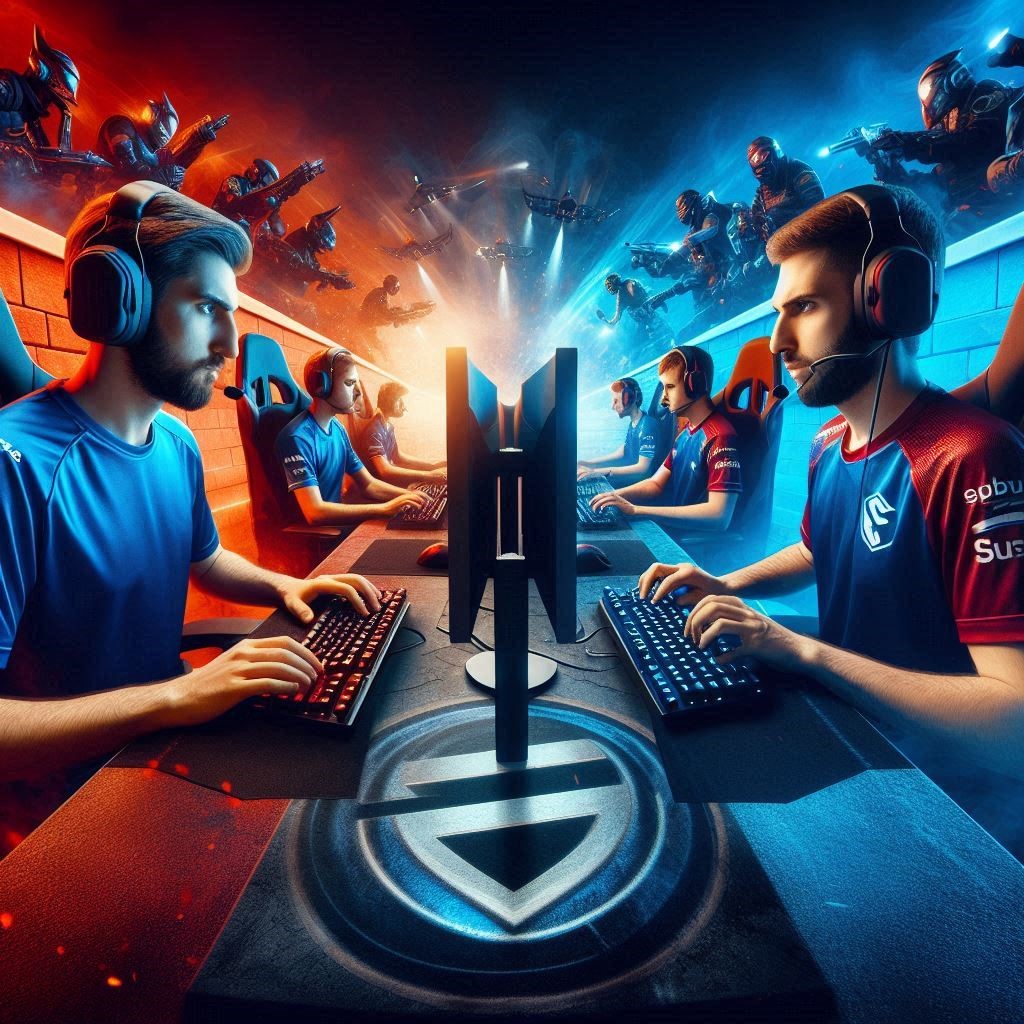LFT vs LFP Gaming: Which Path to Take?
LFT and LFP Gaming
The gaming world is constantly evolving, offering players a variety of paths to explore. Among the most popular choices are LFT and LFP gaming. But what do these acronyms really mean, and how can they shape your gaming experience? Whether you’re looking for flexibility or a structured environment, understanding the differences between these two approaches can help you make an informed decision.
LFT stands for Looking For Team, appealing to those who thrive in collaborative settings. On the flip side, LFP means Looking For Player—ideal for gamers seeking teammates on their own terms. Each option presents unique opportunities and challenges that cater to different player styles. So which path should you take? Let’s dive into the exciting world of LFT vs LFP Gaming and discover what suits you best!
The Differences Between LFT and LFP Gaming
LFT and LFP gaming cater to different player needs. LFT, or Looking For Team, usually focuses on players seeking a group to join. This option is ideal for solo gamers who crave teamwork but don’t have friends available.
On the other hand, LFP, or Looking For Player, emphasizes teams actively recruiting members. Here, established teams seek new talent to enhance their roster. This approach often cultivates a sense of community since players work together towards common goals.
The matchmaking systems also differ in nuance. LFT allows for more flexibility; you can switch between teams with relative ease. Conversely, joining an LFP team may come with commitments regarding schedules and performance expectations.
Each path has its unique flavor that appeals to different personalities within the gaming landscape. Whether you’re looking for collaboration or keen on joining an existing squad influences your choice significantly.
Advantages and Disadvantages of LFT Gaming
LFT gaming, or Looking For Team gaming, offers a vibrant community experience. Players often find camaraderie as they join like-minded individuals seeking cooperative play. This can lead to lasting friendships and teamwork skills that enhance the overall gaming experience.
However, LFT comes with its challenges. The process of finding a compatible team can be time-consuming and frustrating. Not everyone has the same goals or playing styles, which may result in mismatched expectations.
Another advantage is flexibility in choosing roles and games. Players have the freedom to explore different titles while searching for teams that align with their interests.
On the downside, competition can be fierce within LFT communities. With numerous players vying for limited spots on established teams, standing out becomes essential yet daunting. Balancing these pros and cons requires careful consideration before diving into LFT gaming adventures.
Advantages and Disadvantages of LFP Gaming
LFP gaming offers a structured environment, perfect for players seeking a consistent team experience. This can lead to stronger camaraderie and improved teamwork as members often develop familiarity with each other’s playstyles.
However, the rigidity of LFP can sometimes stifle creativity. Players may feel pressured to conform to established strategies rather than explore new tactics.
Another downside is the potential for commitment issues. Teams might face challenges if one member decides to leave abruptly or cannot meet scheduled sessions consistently.
On the flip side, LFP gaming typically attracts more serious gamers who are dedicated and motivated. This fosters an atmosphere where growth and improvement are prioritized.
Yet this seriousness could be intimidating for casual players looking just to have fun without high stakes. Balancing enjoyment with competition becomes essential in such scenarios.
Personal Factors to Consider When Choosing Between LFT and LFP Gaming
Choosing between LFT and LFP gaming involves personal preferences that can significantly impact your experience.
Think about your commitment level. Are you looking for a casual escape or a more intense, competitive environment? Your time availability plays a crucial role in this decision.
Social dynamics matter too. Do you thrive in team settings, or do you prefer solo adventures? This choice can shape how enjoyable your gaming sessions are.
Skill level also comes into play. If you’re starting out, an LFP approach may offer guidance from experienced players. Conversely, if you’re confident in your abilities, LFT might provide the challenge you seek.
Consider what type of community resonates with you. The atmosphere of each path varies greatly and will influence not only gameplay but also friendships formed along the way. Tailoring your choice to these factors could enhance your overall enjoyment in the gaming world.
How to Make the Most Out of Your Chosen Path
To thrive in your chosen path, whether LFT or LFP gaming, embrace a mindset of continuous improvement. Stay open to learning and adapt as you progress through different experiences.
Engage with the community around your choice. Join forums, participate in discussions on social media, and connect with other gamers who share similar interests. These interactions can provide valuable insights and enhance your skills.
Set realistic goals for yourself. Whether it’s mastering a new game mechanic or improving teamwork strategies, having clear objectives helps maintain motivation.
Don’t forget to reflect on your gameplay regularly. Analyze what works well and what doesn’t. This self-assessment allows for better decision-making moving forward.
Make time for enjoyment! Gaming should be fun above all else; remember that passion fuels success in both paths.
Finding Your Perfect Match: LFT vs LFP Gaming
Finding your perfect match in the gaming world can feel overwhelming. LFT and LFP offer distinct opportunities that cater to different player needs.
If you thrive on spontaneous teamwork, LFT might be your go-to choice. You jump into lobbies seeking players who share your goals. This method encourages adaptability and quick thinking while keeping gameplay exciting.
On the flip side, if you prefer structure and planned engagement, consider LFP. Here, you have a chance to form lasting bonds with teammates before diving into action. This approach fosters camaraderie and often leads to more coordinated strategies during gameplay.
Self-awareness plays a critical role. Think about what energizes you while gaming: is it the thrill of a random encounter or the comfort of familiar faces? Knowing this helps steer you towards an enjoyable experience tailored just for you.
LFT vs LFP Gaming: Pros and Cons Explained
When delving into LFT (Looking for Team) and LFP (Looking for Players) gaming, understanding their advantages can guide your journey.
LFT is often seen as a player-centric approach. You seek a team, which means you control the narrative. This can lead to tailored experiences that fit your playstyle. However, it may limit exposure to diverse strategies or community experiences.
On the flip side, LFP opens doors to new players and teams seeking talent. It fosters collaboration and learning from others. The downside? You might join a group with mismatched goals or skill levels.
Both avenues come with unique challenges and opportunities. Assessing what resonates more with your gaming ethos is crucial in navigating this vibrant landscape of online play.
Navigating the Gaming World: LFT vs LFP
Navigating the gaming world can feel overwhelming, especially when choosing between LFT and LFP options. Each path offers its own set of experiences that cater to different players’ needs.
LFT, or Looking For Team, often appeals to gamers seeking a dynamic experience. It encourages collaboration and teamwork. This path allows you to dive into new games alongside diverse groups.
On the flip side, LFP—Looking For Players—focuses on building your personal squad for specific titles. Here, you have greater control over who joins your gaming sessions. It’s ideal for those who thrive in familiar environments with trusted allies.
Both paths offer unique opportunities for growth and adventure within the gaming community. Understanding which option aligns with your personality is key to an enriching experience as you explore this vibrant digital landscape.
The Ultimate Guide to LFT vs LFP Gaming
The world of gaming is ever-evolving. Players often find themselves choosing between LFT and LFP gaming styles. Each path offers unique experiences that cater to different preferences.
LFT, or Looking for Team, is perfect for those who thrive in dynamic environments. It fosters interaction with new players, which can lead to unexpected friendships and alliances.
On the other hand, LFP, or Looking for Player, allows gamers to build a team they know well. This approach promotes synergy and strategic planning among familiar members.
Understanding both paths enables you to make informed decisions about your gaming journey. It’s essential to weigh personal goals against the potential benefits each style brings.
Take time exploring forums and communities dedicated to these approaches. Engaging with others will enhance your insights into what suits you best within this vibrant landscape of LFT vs LFP Gaming.

LFT vs LFP Gaming: Strategies for Success
When diving into the world of LFT vs LFP gaming, understanding strategies for success can significantly enhance your experience. Whether you lean toward looking for teams (LFT) or are part of an established group seeking players (LFP), there are key strategies that can help you thrive.
For those who choose the LFT path, clear communication is essential. Highlight your skills and accomplishments in your profile to attract potential teammates. Be open about what roles you excel at and what games you’re passionate about. Networking within gaming communities will also boost your visibility.
On the flip side, if you’re involved with LFP gaming, consider creating detailed descriptions when searching for new members. Clearly outline expectations regarding gameplay attitudes, commitment levels, and preferred play styles to ensure a good fit. This clarity can save time and prevent misunderstandings down the line.
In both cases, flexibility is vital. Be prepared to adapt as team dynamics evolve or as challenges arise during gameplay sessions. Embrace constructive feedback from others and be willing to adjust your approach based on collective goals.
Remember that each journey through LFT vs LFP gaming is unique. Continually evaluate what works best for you while staying engaged with other gamers in community forums or social media groups tailored to these paths. By applying these strategic insights thoughtfully and consistently, you’ll increase not only your chances of success but also enhance overall enjoyment in this vibrant landscape of gaming choices!







